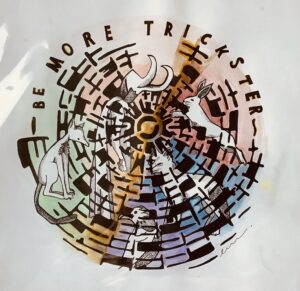Walking the dog a while back I was taken with the amazing seed heads around and make me think about the scripture “Unless a grain of wheat falls into the earth and dies, it remains alone; but if it dies, it bears much fruit.” (John 12:24). It caught me not just as a verse of hope, but as a pattern that runs deep in how ideas grow.
Since Wallas, described a four-stage model of creativity in his 1926 book The Art of Thought, when we talk about ideas, there are stages that repeat. I particularly like Shannon Hopkins idea of “junk the brain” get all the ideas out fast and furiously to make space for some real out of the box thinking.
One pattern could read along the lines of First is the spark, that flash when the idea is born. Second comes the shaping, when we test and sketch, throw things out to see what sticks, gathering others to work it up. But I think the third stage is stranger, harder and looks suspiciously like death, either in terms of Shannon’s junking all the other ideas or as the third stage of ideation, when the idea no longer belongs to you. When you stop clutching it tightly as your possession and allow it to be buried, entrusted to soil that something new grows. The grain of wheat image is not about efficiency or productivity, it’s about release. It suggests that if we refuse to let go either of the initial ideas or if we insulate and protect our bright spark from change, criticism, or collaboration, it remains alone in its own sterility.
But when we release it, even bury it, something else happens. It may disintegrate in its original form, but in that decomposition potential multiplies. Fruit emerges. The community reshapes it, God breathes on it, and what was once “mine” becomes “ours.” What was a single thought or series dies and seeds a space where movements emerge that belongs to something bigger than we imagined.
In organisational innovation, this feels risky. It is tempting to hold to control structures, to keep ownership, to patent and protect. But ideation as faith practice teaches a different rhythm: hold lightly and let the seed fall. Trust the soil of community and Spirit. The third stage is less about control more about surrender.
I wonder if this is why so many pioneering ideas falter, they never move beyond the hand of the founder. We tend to want the harvest without the letting-go. Yet John’s image is uncompromising: the fruit only comes after the seed dies to its own form.
So perhaps the invitation today is simple but costly. What idea are you still clutching in your hand, afraid to plant? What seed needs releasing into the ground of community, risking loss in order to multiply life? Ideation is not complete until we dare to embrace the third stage, trusting death as the doorway to a new future.

